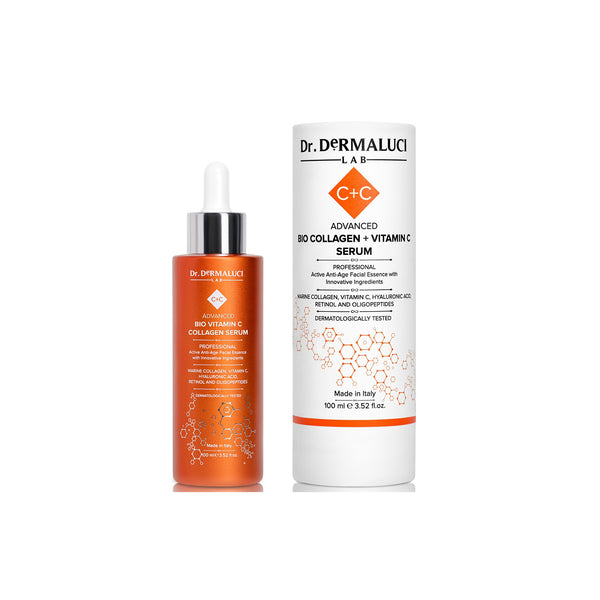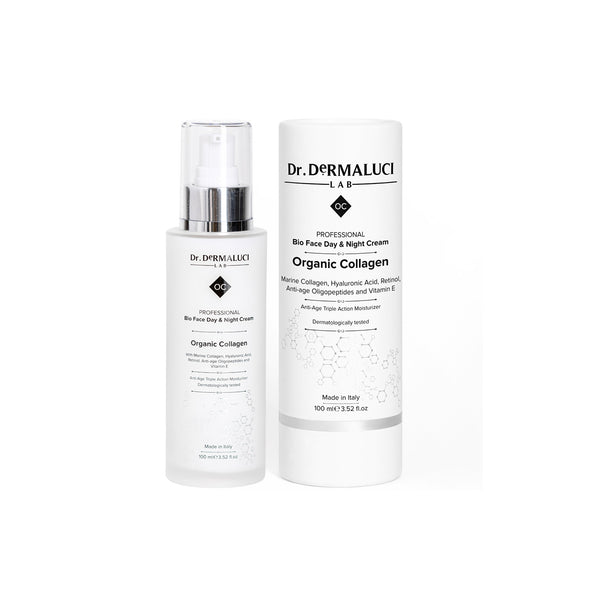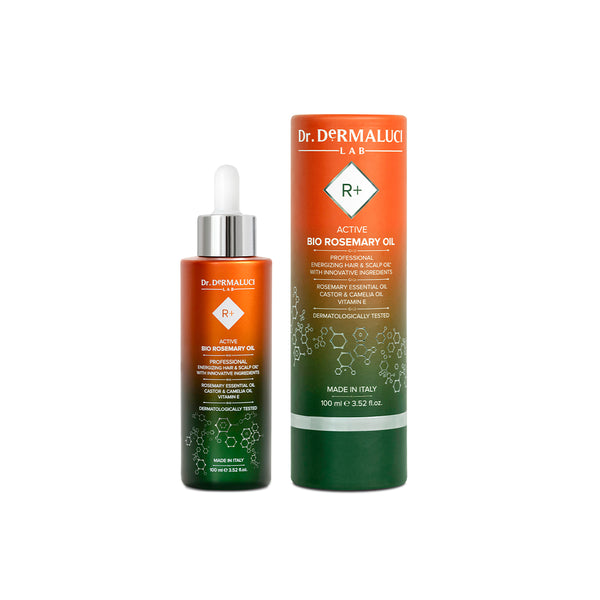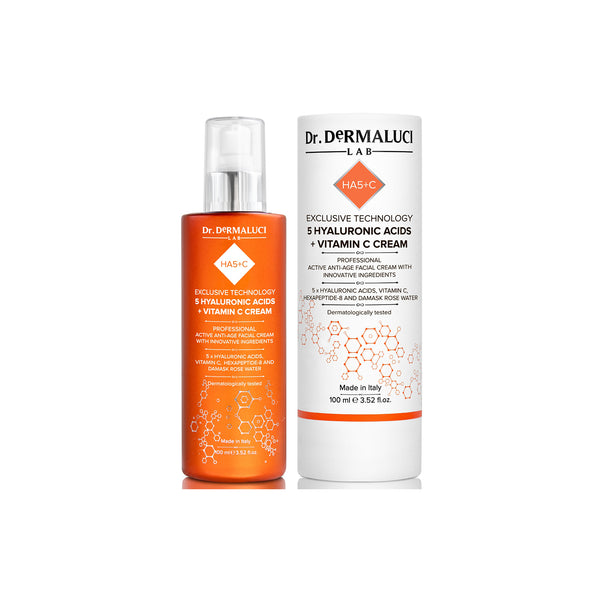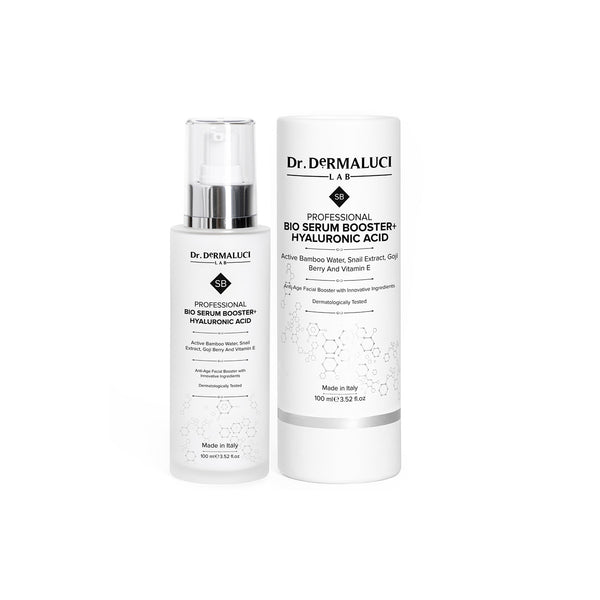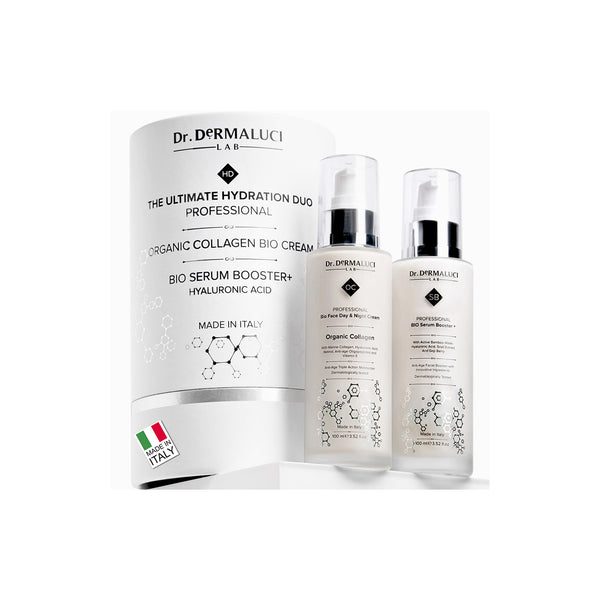
Menopause & Skin: Peptides, Hyaluronic Acid and Adaptogens for Healthy Mature Skin
🌸 When Hormones Change, So Does the Skin
From perimenopause to post-menopause, declining estrogen levels alter nearly every layer of the skin.
Collagen decreases by up to 30 % in the first five years; hyaluronic acid production slows; firmness and hydration drop.
The result is thinner, drier, more fragile skin — often with uneven tone or increased sensitivity.
💧 Hydration from the Inside Out
Hyaluronic acid is the molecule of moisture — but not all are equal.
Multi-molecular HA (combining high, medium, and low weights) replenishes hydration at multiple depths:
- High weight → plumps the surface.
- Medium weight → restores elasticity.
- Low weight → penetrates deep for lasting comfort.
Paired with vitamin C and collagen peptides, it revives the skin’s internal support network.
🧬 Peptides: Signals for Regeneration
Peptides act as “messengers” that encourage fibroblasts to produce more collagen and elastin — compensating for hormonal decline.
They improve texture, firmness, and the feeling of density often lost during menopause.
🌿 Adaptogenic Botanicals: Balancing Stress and Inflammation
Menopausal skin also faces increased oxidative stress.
Adaptogens like ginseng, rosemary, and centella asiatica help cells adapt to environmental and emotional stressors.
Their bioactive compounds soothe inflammation, boost microcirculation, and restore vitality naturally.
🌺 The Smart Routine for Mature Skin
- Gentle cleanser (pH balanced, non-stripping)
- Peptide serum with multi-molecular HA and vitamin C
- Nourishing cream with adaptogens & ceramides
- Daily SPF & antioxidant shield
Menopause is not a decline — it’s a biological evolution.
With the right science and rituals, the skin can remain luminous, firm, and deeply alive.
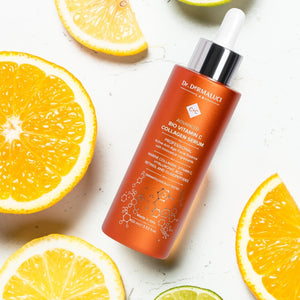
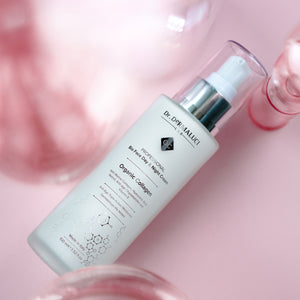
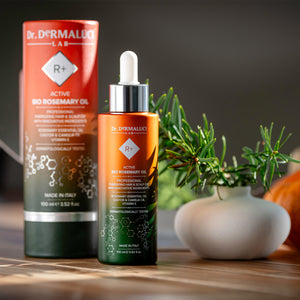
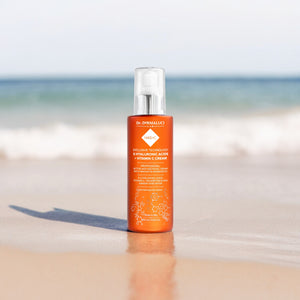
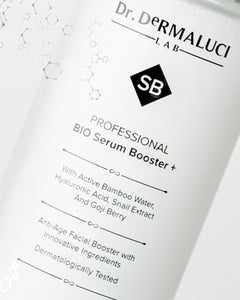
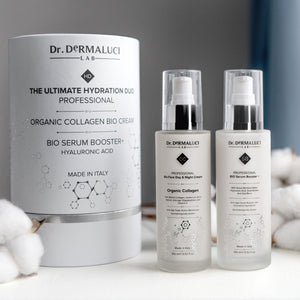

 Verified by shop
Verified by shop







